CERTIFICATIONS FOR SUSTAINABILITY

A Guide for Regenerative Destinations
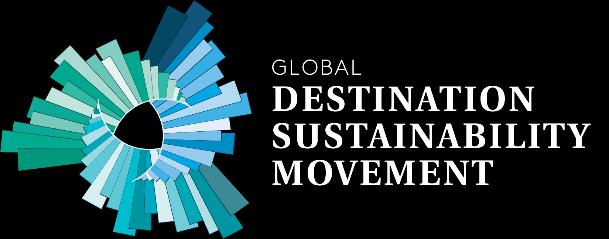

April 2023
• Introduction
• What is a Sustainability Certification?
• Why Should Organisations Apply for Sustainability Certification?
• What to Look for in a Sustainability Certification forTourism and Events
• What are Certification Requirements for GDS- Index?
• Recommended Sustainability Certifications

• Recommended Principles
• Recommended Reporting Initiatives
• Vertical Certifications: Adding Credibility and Focus

• Appendix 1: Key Performance Areas
• Appendix 2: Glossary of Terms
• About the GDS-Movement
1
Contents
13
How do we know which certifications best fit our needs?
Objective of this Document
Introduction






The aim of this guide is to provide a trustworthy source of information that enables tourism and event professionals to identify which certification(s) best fits their organisation's needs. This guide summarises what sustainability certifications are, why they should be implemented, and which aspects should be considered when researching the options.
Acquiring sustainability certifications represents a significant investment of time and financial resources, yet the potential for them to drive responsible business practices, enhance brand reputation, and support clients in their purchasing choices is unrivalled.

Increase in Demand
In recent years, client demand for sustainable practices has grown steadily. Booking.com’s 2022 Sustainable Travel Research Report indicates that 81% of global travellers confirm that sustainable travel is important to them. 36% of these respondents said they would be encouraged to make more sustainable travel choices if travel platforms used a clear label so they can easily identify when a hotel or service provideris more sustainable.
How can we be sure of their credibility?
In the 2022 Global Business Travel Association’s Sustainability Report, 78% of buyers said that working with suppliers with certification should be mandated or encouraged. The 2023 Global Meetings And Events Forecast by American Express states that 70% of event planners are now working with a defined sustainable meeting strategy, and actively looking for certified vendors.
The 2022 GDS-Index results have shown that in participating destinations, an average of 34% of hotels and 18% of event agencies across all destinations have third-party certification, with a surprising 10% jump in average of certified venues to 58%.
2
A sustainability certification represents a label that measures the integration of sustainable practice and performance against a set of predetermined environmental, social, and economic criteria.



Sustainability certifications are generally aligned with specific industry trade groups and/or international organisations to identify base performance levels and enable comparisons across regions and products.


Why
should organisations apply for Sustainability Certification?
A good third-party-verified sustainability certification:
1. legitimises the sustainability strategy of an organisation by verifying claims and providing external validation on issues such as responsible supply-chain management, legal compliance, and environmental- and social-risks management practicesand procedures,
2. drives improvement in sustainability strategy and performance by showing organisations how and where they can improve and providing thema performance improvement pathway, and
3. makes evaluation and selection of a sustainable supplier easier for visitors and buyers, be it an individual or an organisation.
What is a Sustainability Certification?
3
What to Look for in a Sustainability Certification for Tourism and Events

CERTIFICATION VALIDATION TYPES

There are 3 levels of certificationvalidation:
► First-party: the tourism or events organisation assesses its own compliance with the standard and certification criteria. It then make a “self-assessed” or “self-declared” statement. This is often known as an internal audit.
GSTC RECOGNITION AND ACCREDITATION
► Second-Party: the tourism or events organisation is audited by an organisation with a pre-existing relationship, such as the consultant who is developing the sustainability processes for the tourism or events organisation, or a client.
► Third-Party: the tourism or events organisation is audited and a conformity assessment for it is carried out by an individual or body that is independent of the entity being certified. Successful compliance to the standard is rewarded with a statement from the certification body.
All validation types have their uses and are linked to the organisations' objectives.
The Global Sustainable Tourism Council (GSTC) developed the GSTC Criteria to set an international standard for sustainability in travel and tourism. They laid out industry and destination criteria based on 4 pillars:Environment, Social, Cultural, and Management Principles.
The GSTCalso provides assurance forSustainable Tourism by:
• recognising standards and systems that are equivalent to the GSTC criteria,providing themwith the ‘GSTCRecognised’ status, and
• accrediting certificationbodies;verifying that theirprocesses and procedures to award certificationcomply with international standards and good practice.GSTC-accredited bodies need to use the GSTC standard or ‘GSTC Recognised’ standard for certification.
4
STANDARD APPROACHES

Typically, there are two main approachesto certificationstandards:
A Management Standard such as ISO 20121* or ISO 14001** validates the management system or framework of processes and procedures used to ensure that an organisation can fulfil all tasks required to achieve its objectives(i.e. the task of running a more sustainable organisation).
Performance Standards do not focus so much on the processes, rather they stipulate specific characteristics and/or performance levels that the organisation must achieve - and be able to demonstrate - to become certified.
CONSULTING
*ISO 20121refers to a SustainableEventManagement System (SEMS)
**ISO 14001 refers to an Environmental ManagementSystem (EMS)
Many consulting organisations are equipped to support the development and delivery of sustainable tourism and event strategies, although not all consultancies are accredited to support on implementing sustainability certifications.
Make sure to do your homework, should you choose to work with a consultant to implement a standard, check that they are educated on, experienced in, and/or accredited for your choice of certification.

5
What are the requirements for the GDS- Index?
GDS-Index includes criteria which assess what percentage of destination management organisations and businesses from key sectors of the tourism and events supply chain have a third-party-verified sustainability certification (Criteria # SU-1, SU-4, SU-7, SU-8, SU-11, SU-12, DM-10, DM-11).
Local, regional, and international standards are accepted, however, to receive credit from GDS-Index assessors, the standard must:
► be third-party, independently verified and certified, ► address at least environmental impacts of management and operations. It is strongly recommended that the standard also considers social and cultural aspects, taking a more holistic view of sustainability*,and ► follow the credibility principles of improvement, relevance, rigour, engagement, impartiality,transparency and accessibility asdefined in the ISEAL Code of Good Practice.
In the following pages, please find a list of GDS-Index-acceptable sustainability standards and certification programmes. This is not an exhaustive list and other certificationswill be accepted if they meet the minimum requirements above.

We recommend and, in the future, may require that standards being used are accredited to or recognised by the GSTC, and that the assurers are compliant with ISO17065 or the ISEAL Assurance Code of Good Practice, or similar national programmes.
What will NOT receive credit in GDS- Index?
There are many certifications, standards, and labels which have a wide range of applications and uses but may not receive credit in GDS- Index.This includes, for example:
• First- and Second-Party-verified standards,
• Green Building certification (i.e. LEED, BREEAM), as the focus should be on the management and operations of the business, and not on the design and construction of its building,
• Specific-quality, CSR, waste, energy, or climate standards (i.e. ISO9001, ISO26000, ISO50001, PAS2060), and/or
• Hotel chain standards ( e.g. IHG Green Engage , Accor’s Planet 21) and OTA labels (e.g. Travel Sustainable on Booking .com) that are not third-party-verified.
*In future, the GDS-Movement intends to provide full credit only for third-party certification that considers environmental and social-cultural aspects
What will receive credit in GDS-Index?
6
RECOMMENDED SUSTAINABILITY CERTIFICATIONS
In the following table,we present a list with some of the key multinational sustainability standards that are third-party certifiable and suitable for the tourism and events industry.This is not an exhaustive list and there are many excellent national and regional sustainability certificationprog rammesthat may be suitable and accepted.The Key Focus Areas are defined inAppendix 1 .
CERTIFICATIONS OVERVIEW
EarthCheck is one of the leading environmental certification and benchmarking programmes for the travel and tourism industry, used in over 70 countries. EarthCheck is sciencefocused, offering access to multiple support tools and over 32 standards. EarthCheck is a GSTC-accredited certification body for destinations. It assesses against a ‘GSTC Recognised’ Standard.


Green Destinations works with over 200 destinations on both an awards and certification programme. The certification features over 100 criteria and is independently verified and a ‘GSTC Recognised’ standard for destinations. Green Destinations is also a GSTC-accredited certification body for destinations.

METHODOLOGY KEY FOCUS AREAS WHO CAN APPLY
Third-Party Verification
• Environmental Performance
• Carbon Emissions
• Community and Employee Impact
• Custom Indicators
• Destinations
• Hotels and Venues
• Restaurants
• + 32 categories
Biosphere is one of the leading global, private, voluntary and independent systems for the management, recognition, and certification of a territory, destination, company, service, or product. It is ‘GSTC Recognised’ Standard.

First-Party + Third-Party Verification
• Environmental Performance
• Health and Safety
• Social and Cultural Affairs
• Destinations
Third-Party Verification
• Environmental Performance
• Social and Cultural Affairs
• Destinations
• Events
• Hotels
• Transportation
• Events
The Green Globe certification is a structured assessment of the sustainability performance of travel and tourism businesses and their supply chain partners. Green Globe uses a ‘GSTC Recognised’ Standard.
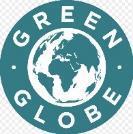
Third-Party Verification
• Environmental Performance
• Social and Cultural Affairs
• Hotels
• Restaurants
• Suppliers
• Transportation
• Venues
5
7
Green Key is a voluntary eco-label awarded tomore than 4000 hotels and other tourism establishments in 60 countries. It is a leading global standard for excellence in the field of environmental responsibility and sustainable operation within the tourism industry, witha strong base in Europe. Green Key uses a ‘GSTC Recognised’ standard. Please note: Green Key is a separate organisation from Green Key Global.
Green Key Global is a leading environmental certification body that offers standardised programmes and resources, designed specifically for hotels and lodging facilities and event facilities. Current participation includes over 1500 hotels and 350 venues. Green Key Global is particularly strong in North America. Green Key Global uses a ‘GSTC Recognised’ Standard.
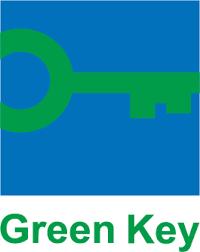
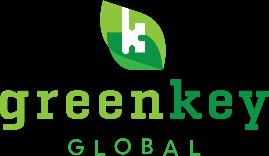
The Travelife certification programme provides an affordable certification standard toevaluate, prove, and communicate sustainability achievements. Travelife integrates criteria and approaches from GSTC, ISO14001, ISO26000, and GRI. Travelife for Hotels and Accommodation is a ‘GSTC


Recognised’ Standard.
First-Party + Third-Party Verification
• Environmental Performance
• Food & Beverage
• Indoor Environment
• Waste Management
• Water & Energy
• Work Environment
• Hotels
• Restaurants
• Venues
GreenSign sustainability certification has more than 500 certified companies in 17 countries, with a strong base in Germany. The 5-level certification system assesses businesses against almost 100 criteria in the GreenSign catalogue. GreenSign Hotel Standard is a ‘GSTC Recognised’ Standard.
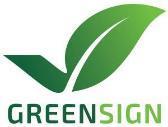
First-Party + Third-Party Verification
• Environmental Performance
• Indoor Environment
• Social and Cultural Affairs
• Waste Management
• Water & Energy
• Hotels
• Venues
First-Party + Third-Party Verification
• Air quality
• Environmental Performance
• Heath & Safety
• Supply Chain Management
• Waste Management
• Water & Energy
• Work Environment
• Management and Communication,
• Environment (Energy, Water, Waste)
• Biodiversity and Cultural Heritage
• Hotel and Accommodation
• Tour Operators and Travel Agencies
Third-Party Verification
• Purchasing
• Regionality and Mobility
• Quality Management
• Social and Economic Responsibility
• Hotels
• Offices
• Spas
The Good Travel Seal certification, operating worldwide, is awarded to tourism businesses for their commitment to environmental and social contributions. The Seal is especially created to serve small to medium-sized enterprises (SMEs), but large businesses can also be certified. There are three levels of the Good Travel Seal, based on the score the business achieves.

First-Party + Third-Party Verification
• Environmentally-Friendly Management
• Social Responsibility
• Health & Safety
• All types of businesses in the tourism supply chain
5
8
Green Tourism is a leading certification and support programme for over 2500 businesses and destinations in the tourism and hospitality sector. Their new ‘Green Meetings’ standard is specific to meeting and event venues. They work globally, with a particularly strong base of clients in the UK and Ireland. They offer remote audits at an affordable pricepoint.


Third-Party Verification
• Communications & Awareness
• Community
• Health & Wellbeing
• Equality, Diversity & Inclusivity (EDI)
• Food & Drink
• Biodiversity
• Energy & Water
• Waste, Carbon Emissions, and Chemicals
• Conferences & Events
• Hotels & Venues
• Restaurants
• Corporate Offices
• Transportation
• Visitor Attractions
• B&B / Self-catering
• Camping / Holiday Parks
• Activity providers
• Tour Operators
The Events Industry Council Sustainable Event Standards assess events and event industry suppliers on a wide range of sustainability criteria in support of environmental and social responsibility. They replace the former APEX/ASTM Environmentally Sustainable Meeting Standards and are specifically designed for the Events Industry.

Third-Party Verification
• Environmental Performance
• Social Performance
• Event Organiser
• Accommodation
• Venue
• Destinations
• Food & Beverage
• AV and Production
• Exhibition
ISO 20121:2012 specifies requirements for an event sustainability management system for any type of event or event-related activity or organisation

First-Party + Third-Party Verification
• Environmental Performance
• Social Performance
• Event Organisers
• DMOs, PCOS
• Venues
B Corp Certification is a leading global certification that measures a company’s entire social and environmental performance. The B Impact Assessment evaluates how a company’s operations and business model impact its workers, community, environment, and customers. It provides access to support tools.


First-Party + Third-Party Verification
• Environmental Performance
• Social Performance
Any organisation
5
9
Certifications with a Focus on Environmental Impact Only
The EU Ecolabel for Tourist Accommodation provides efficient guidelines for hotels and camping sites looking to lower their environmental impact while offering enough flexibility to allow proper guest satisfaction. This is valid only in Europe (widespread in France, Italy, Spain, and Austria).

Third-Party Verification
• Environmental Performance Tourist Accommodations
The Nordic Swan Ecolabel is a voluntary ecolabelling scheme for the Nordic countries Denmark, Finland, Iceland, Norway, and Sweden. Nordic Swan covers 55 product groups including those relevant to the events and tourism sector. A company certified by the Nordic Swan Ecolabel meets ambitious environmental requirements.
Third-Party Verification
• Environmental performance
Hotels and other Accommodation
Food Services and Conference Facilities
The EU Eco-Management and Audit Scheme (EMAS) is a premium management instrument developed by the European Commission for companies and other organisations to evaluate, report, and improve their environmental performance. EMAS is open to every organisation type eager to improve environmental performance. It spans all economic and service sectors and is applicable worldwide.

ISO 14001:2015 is intended for use by an organisation seeking to manage its environmental responsibilities in a systematic manner that contributes to the environmental pillar of sustainability. It helps an organisation achieve the intended outcomes of its environmental management system, which provide value for the environment, the organisation itself and interested parties. It is the most widely adopted environmental standard in the world, with millions of certifications. However it is not tourism or events focused.


Third-Party Verification
• Credibility / Transparency
• Environmental Performance
Any organisation
First Party + Third Party Verification
• Environmental Performance
Any organisation

5
10 NOTE:Anothergreat source for sustainability certificationsis the online directory EcoLabel Index, tracking 457 ecolabelsin 199 countries, and 25 industry sectors.
PRINCIPLES
RECOMMENDED PRINCIPLES
A call to companies to align strategies and operations with 10 universal principles on human rights, labour, environment, and anti-corruption, and take actions that advance societal goals.
The UN Global Compact is the largest corporate sustainability programme in the world with over 12 000 participants in 160 countries.

First-Party
• Human Rights
• Labour
• Environment
• Anti-Corruption
• SMEs and Corporations
• Academic Institutions
• Business Associations


• Cities and Municipalities
• Civil Society Organisations
• Foundations
• Labour Organisations
• Public Sector Organisations
• Corporate Social Responsibility (CSR) Organisations
The Events Industry Council, working with interested parties in the industry, created the EIC Principles for Sustainable Events.

The four EIC Principles align and address all 17 of the United Nations Sustainable Development Goals.
Organisations can choose to endorse and support the adoption of the Events Industry Sustainability Principles as a foundation to sustainable event practices. You can find the PDF here.
First-Party + Third-Party Verification
• Conservation of Resources
• Waste Management
• Carbon Emissions
• Responsible Purchasing
• Biodiversity Preservation
• Human Rights
• Labour Practices
• Safety & Security
• Collaborations & Partnerships
• Transparency
• Responsible Governance
• Event Organisers
• Suppliers
5
OVERVIEW METHODOLOGY KEY FOCUS AREAS WHO CAN APPLY
11
RECOMMENDED REPORTING INITIATIVES
INITIATIVES OVERVIEW AND SCOPE
METHODOLOGY WHO CAN APPLY
GRI helps businesses and governments worldwide understand and communicate their impact on critical sustainability issues such as climate change, human rights, governance, and social well-being, among others. This motivates real action to stimulate social, environmental, and economic benefits for all.
The Global Reporting Initiative is an extremely comprehensive reporting framework, enabling all types of businesses to use the same system todemonstrate their progress in all aspects of environmental, social, and economic areas.
First-, Second- and ThirdParty

Any business can use the GRI framework
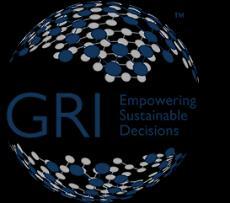
The Business Reporting on the SDGs guide aims to help companies of all sizes to prioritise United Nations (UN) Sustainable Development Goals (SDG) targets to act and report on, set related business objectives, and measure and report on progress.

It follows an approach aligned with the Ten Principles of the UN Global Compact, the UN Guiding Principles on Business and Human Rights, and the GRI Sustainability Reporting Standards. It guides businesses to conduct a principled prioritisation of relevant SDGs and targets for their business.
CDP runs the global environmental disclosure system. Eachyear, CDP supports over 18 700 companies, 1 100 cities, states, and regions to measure, manage, and disclose their risks and opportunities on climate change, water security, and deforestation. They doso at the request of more than 700 investors with US$136 trillion in assets.

They focus investors, companies, and cities on taking action to build a truly sustainable economy by measuring and understanding their environmental impact.
First-Party
Any business can report on the SDGs
First-Party
Any city, government or company
Please note - The recent introduction of the European Union's Corporate Sustainability Reporting directive (CSRD) aims to brings sustainability-related reporting to the same level as financial reporting and extends reporting requirements to a broader set of companies ( of over 250 employees), listed SMEs, as well as introducing mandatory assurance and the inclusion of information in the management report. The first phase of companies must submit their report aligning with the CSRD on 1 January 2025, for the 2024 financial year.Moreinformation
5
12
Vertical Certifications: Adding credibility and focus
Other than the general sustainability certifications, a wealth of certificates, stamps, and seals are also available for the GDS-Index Key Focus Areas such as Energy Management, Emissions Management, Diversity, Equity and Inclusion (DEI), Sustainable Food, and Accessible Tourism.

In many cases, these individual labels and programmes are locally-managed and -approved, ensuring that the most prominent impacts for the specific regionare addressed within the criteria.
Should your destination have a specific interest in one of these “verticals”, the GDS-Movement recommends researching the best local solution to highlight your best practice. Do not hesitate to contact us for further advice.

13
Appendix 1: Key Focus Areas
Here’s a list of the Key Performance Areas mentioned in the GDS-Index Sustainability CertificationsTables.
• Air Quality and Emissions: air pollution, greenhouse gas emissions, carbon neutral/negative
• Circularity: any process related to the circular economy, and the rethinking, reuse, and recycling of resources
• Credibility/Transparency: accountability, integration, innovation, organisational processes, etc.
• DEI: Diversity, Equality and Inclusion
• Environmental Performance: everything related to the preservation and management of ecosystems

• Health & Safety
• Indoor Environment
• Social and Cultural Affairs
• Waste Management: it refers to any type of waste
• Supply Chain: from procurement through suppliers’ selection to the type of products and services chosen ("natural", "organic", "fair trade", etc.)


• Water & Energy
• Work Environment: staff involvement, engagement, wellness, and management
14
Appendix 2: Glossary of Terms
• Accreditation: is the formal declaration by a neutral third party that the certification programme is administered in a way that meets the relevant norms or standards of a certification programme.
• Accreditation Body: is an independent entity that operates in conformity with the standard ISO/IEC 17011 and that is technically competent to accredit Certification Bodies (CBs) to perform conformity assessment.
• Audit: A systematic and comprehensive process of investigation through checking documents, conducting interviews, observation, and other means.
• Certification Body (CB): verifies that specified requirements relating to a standard for product, process, system, and person or body, are fulfilled.
• Certification Scheme: A specific, named programme of certification resulting in the granting of a certificate of conformity to an enterprise by a CB along with the right to display a mark associated with the scheme. It is defined by ISO as “[the rules, procedures, and management for carrying out certification] related to specified [services], to which the same specified requirements, specific rules and procedures apply.” ISO/IEC 17067:2013

• Conformity Assessment (audit): A process of checking and verifying the extent to which a tourism enterprise or certification scheme meets a specified standard and criteria.

• Sustainability Standard: A set of rules, practices, and guidelines that define the requirements of enterprises and organisations in delivering sustainable tourism and events.
• Third-party Verified: A conformity assessment (audit) carried out by an individual or body that is independent of the entity being certified or accredited to.
v
14
About the GDS-Movement
The GDS-Movementenvisionsthriving places and communities activated by regenerativetourism and events. Our mission is to empower people with the mindsets, skill sets, and toolsets to create regenerative destinations to visit, meet, and live in.

Visit our website gds.earth
One of the key objectives of the GDS-Movement is to accelerate the number of businesses and destinations with independent Third-Party Sustainability Certification, and the numbers of buyers requesting them. A good certification programme drives business performance, simplifies sustainable purchasing decisions, builds brand value, and improves social and environment impacts.
 Guy Bigwood, Chief Changemaker and ManagingDirector,GDS-Movement
Guy Bigwood, Chief Changemaker and ManagingDirector,GDS-Movement

15
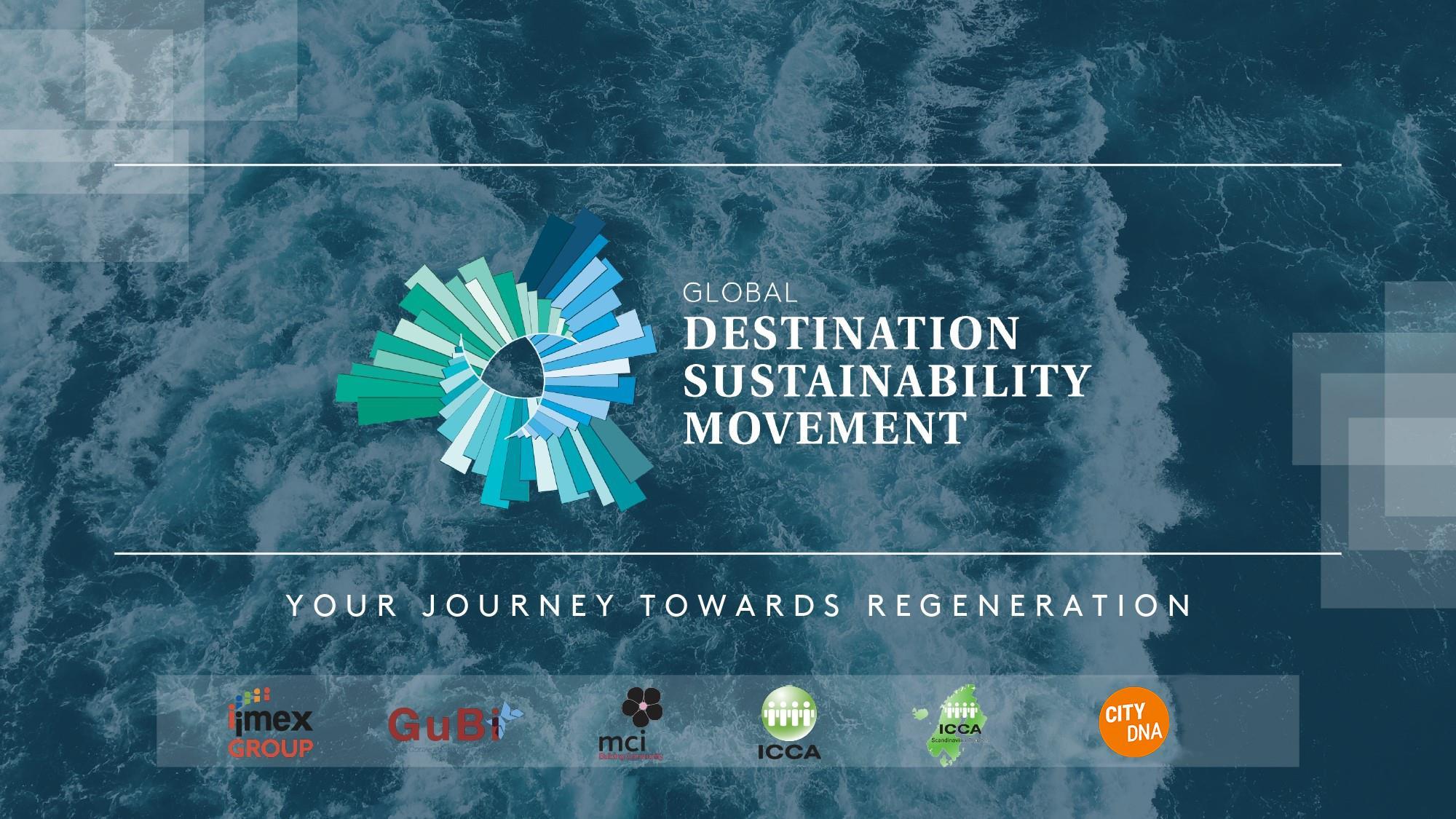



























































 Guy Bigwood, Chief Changemaker and ManagingDirector,GDS-Movement
Guy Bigwood, Chief Changemaker and ManagingDirector,GDS-Movement

